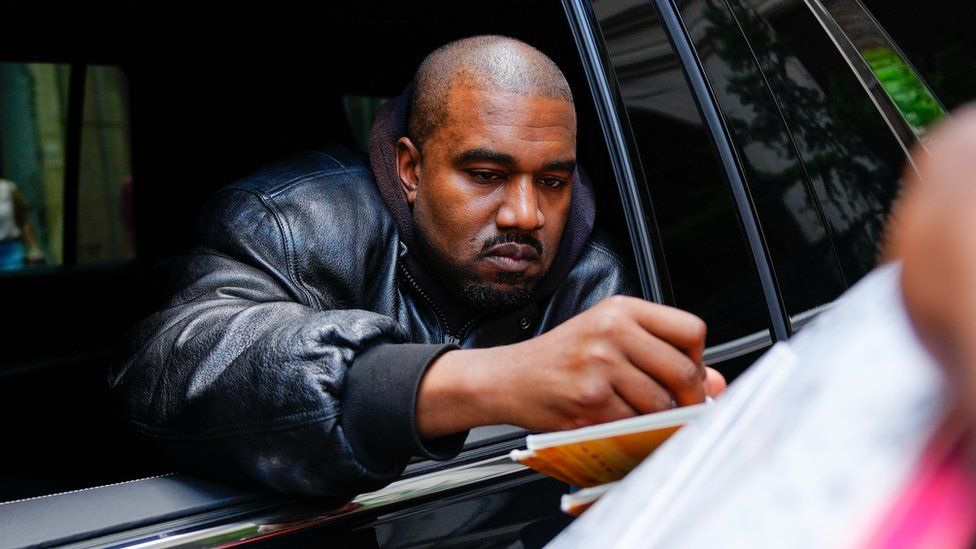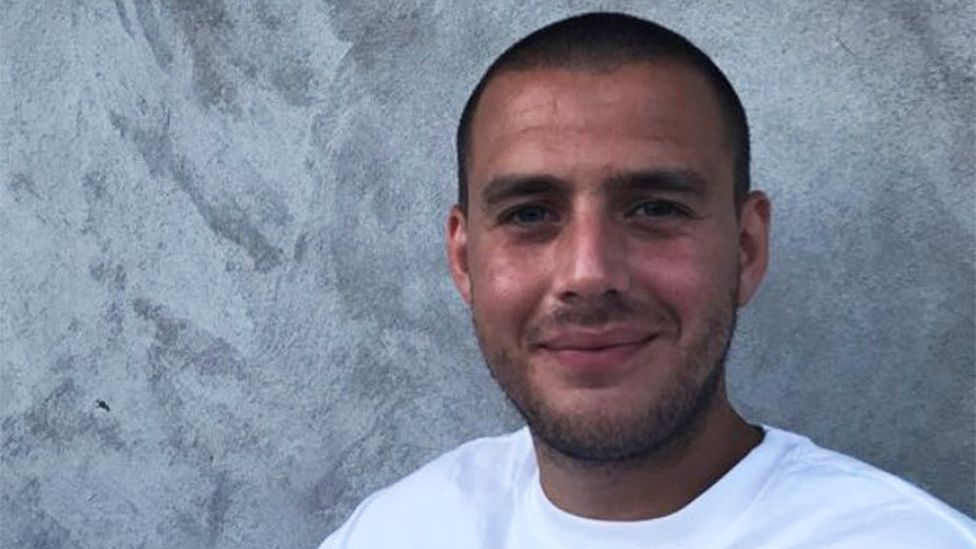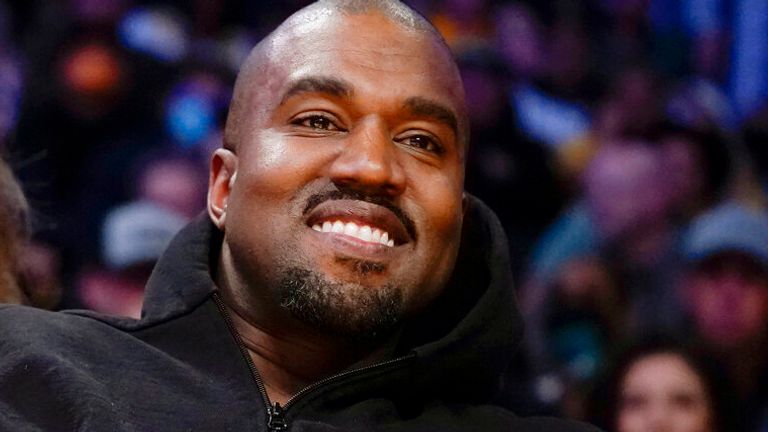Lots of young British Jews have grown up with Kanye West’s music. But many have found his comments about Jewish people extremely offensive.
The US rapper, who now goes by the name Ye, has faced a backlash over a series of chaotic interviews and antisemitic social media posts.
He recently praised Nazi leader Adolf Hitler and was suspended from Twitter for a second time after uploading an image which appeared to show a symbol combining a swastika and a Jewish star.
Few Jews, if any, would now listen to his political views – and even those who were Kanye fans are conflicted over whether to keep listening to his music.
A reluctant listener
“I’m not going to lie, it breaks my heart,” Louis Kay, a part-time music producer from Manchester, tells BBC Newsbeat.
“I was a massive fan of Kanye growing up and really respected him as an artist, record maker and fashion designer.
“Now it’s like I’ve got an ex-boyfriend. I have so many happy memories with him and some of his clothes are just left in my wardrobe. I don’t know what to do with them.”

When West’s Life of Pablo album came out in 2016, Louis, 22, was inspired.
He listened to it throughout that summer while, like hundreds of 16-year-olds every year in the UK, he toured Israel as part of a Jewish youth group.
“But…” Louis says.
“When you find out your favourite artist is endorsing the complete opposite of who you are and attacking your race, culture, everything about you, it is really upsetting.”
Although Louis continues to admire West’s Grammy Award-winning back catalogue, he is worried about the impact that Ye’s outbursts could have on his community and his industry.
“I’ll keep listening to his music in the few ways he can’t make any money from, just out of curiosity.
“But he’s got a lot of power to keep spreading his antisemitic rhetoric. For someone with a platform as big as his, it’s dangerous.”
Ye is still able to connect with his 18.5 million followers on Instagram and can count far-right white supremacists among his most hardcore defenders online.
Other fans have claimed that his mental health has influenced his behaviour. He was diagnosed with bipolar disorder years ago and has publicly spoken about his challenges.
However, medical experts and people who share his diagnosis have warned that mental health problems are no excuse for antisemitism.
A complete boycott
Amber feels Kanye’s comments are a reminder of the threat the Jewish community faces
To some Jewish people, that leaves them with no option but to boycott him completely.
“I feel like I have no choice,” says Amber Pinto, 25, from Hertfordshire.
She no longer listens to Ye’s music and has decided to stop wearing her collection of Yeezy trainers, after also buying and selling pairs in her free time in the past.
“What he’s done is an attack on the Jewish people. From repeating centuries-old antisemitic insults to praising Nazis, it reminds us of the threats that we as a community still face.”
“Even against the backdrop of his criticism of women’s rights and public shaming of female celebrities like Taylor Swift, there’s something especially violent and targeted about this.”
While Adidas, which has manufactured his Yeezy shoes and clothing since 2015, cut ties with Ye last week after public pressure, his music is still available on major streaming services.
The art v the artist
George Ratner, 24, a marketing professional from London, was “disappointed” by Ye’s comments but won’t be deleting him from his playlists.
“It has changed my views on him as a person but not as an artist,” he says.
“I still listen to some other rappers who happen to be controversial,” George explains.
“So I don’t think I should stop listening to Kanye just because his views are expressed against my community and not a different group.”

‘My black identity and Jewish identity’
Some people were already put off by Ye’s opinions on the Black Lives Matter movement and African-American slavery. For a black British Jew, his latest tirade feels painful on several levels.
Mordechai, who has asked to be identified only by the Hebrew name he uses, was ranked in the top 2% of Kanye listeners worldwide on Spotify in 2019.
He says “the turning point” was when Ye said slavery was a choice.
“And after he spoke about White Lives Matter, I was done with him. But I didn’t realise that I would be hit twice as hard when he started talking more about Jews and Nazis.”
“For a while, it was absolute hell trying to reconcile my black identity and my Jewish identity in that context.
“But I think we’re finally getting to a stage now where people are starting to see how hurtful Kanye’s comments are, whatever their background and whoever Kanye might be offending.
“I’m just disappointed that it had to go this far,” he adds.
Ye’s team has been asked to comment.






